
Elderberry Tincture vs Syrup: Complete Guide To Benefits, Daily Use, and Safety
Introduction: What Is Elderberry Tincture?
Elderberry tincture is a concentrated liquid extraction made by steeping elderberries, the fruit of the Sambucus plants (typically Sambucus nigra), in alcohol or another solvent. The herbs produce clusters of white flowers, known as elderflowers, in early summer; these flowers are used in traditional remedies and culinary presentations such as teas and cordials. It is made by soaking the dark purple fruits in water and chosen solvent for six weeks. Glycerin can also be used as an alternative for those who prefer a gentle extraction method. It can tend to carry the flavor of sugar without the extra calories. This method preserves the berry’s medicinal properties and creates a shelf-stable supplement. Unlike the syrups, tinctures are potent and require only a few drops per dose. The solution sometimes has a stronger, sometimes bitter flavor and taste compared to the sweeter syrup. Elderberry tincture has a much longer shelf life than elderberry syrup, lasting up to 5 years when stored properly.
Health Benefits for Cold and Flu Season
Elderberry tincture is most commonly used to support the immune system, relieve upper respiratory and flu symptoms, ease congestion, and soothe sore throats. It provides antioxidants and anti-inflammatory properties ; some studies have shown that the fruit’s constituents may help reduce joint pain, stiffness, and swelling in those suffering from arthritis and other inflammatory diseases. Its use shows proven results treating colds, flu, and respiratory viruses.
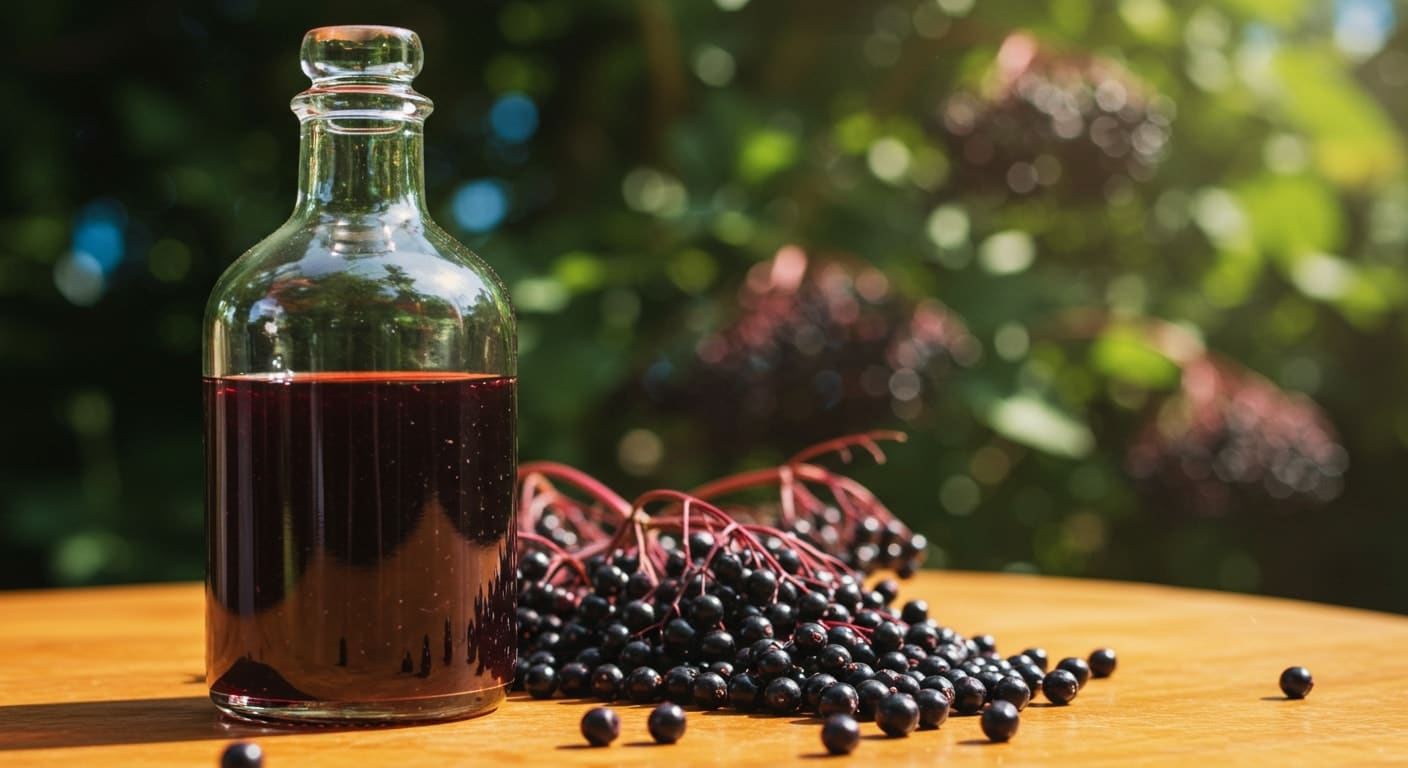
Elderberries are rich in vitamin C, which supports immune health. The herbs also contain moderate amounts of vitamins A, B6, and essential minerals such as calcium, magnesium, and zinc. Further research is ongoing to fully understand the anti-inflammatory properties of elderberry tincture.
Specific benefits include immune system support by activating immune responses potentially reducing the duration and severity of illnesses. Elder plants have been used for centuries in herbal medicine for their immune-boosting properties. Elderberries fight the influenza virus and H1N1 while strengthening the immune system. They may also assist in clearing mucus, easing respiratory inflammation, aid in weight management by regulating metabolism and reducing inflammation-related weight gain, and provide antioxidant protection by fighting oxidative stress with high levels of anthocyanins and flavonoids.
Daily Use, Dosage, and Timing
Many herbalists recommend it as a daily immune tonic, especially during cold and flu season. It is intended to support the immune system on a daily basis, particularly when the risk of seasonal illnesses is higher. Many people use black elderberry tincture daily during the winter months to help prevent seasonal illnesses. It can be suitable for the whole family, with appropriate dosing, but moderation and proper dosage are key.
Typical adult dosages range from 1–2 mL (about 30–60 drops) once or twice daily. Preventative use usually involves 1 dropper per day, while when sick, 2–3 droppers per day (split into multiple doses) are recommended for treating symptoms. Give your bottle a good shake befoe each use to ensure even distribution of the ingredients. For children, consult a pediatrician; a common guideline is half the adult dose, diluted in juice or water. Elderberry drops are typically stored and dispensed from bottles with droppers for accurate dosing. Many prefer taking elderberry tincture in the morning to support immune function throughout the day, though some add it to their tea routine morning and evening.
Safety, Side Effects, and Precautions
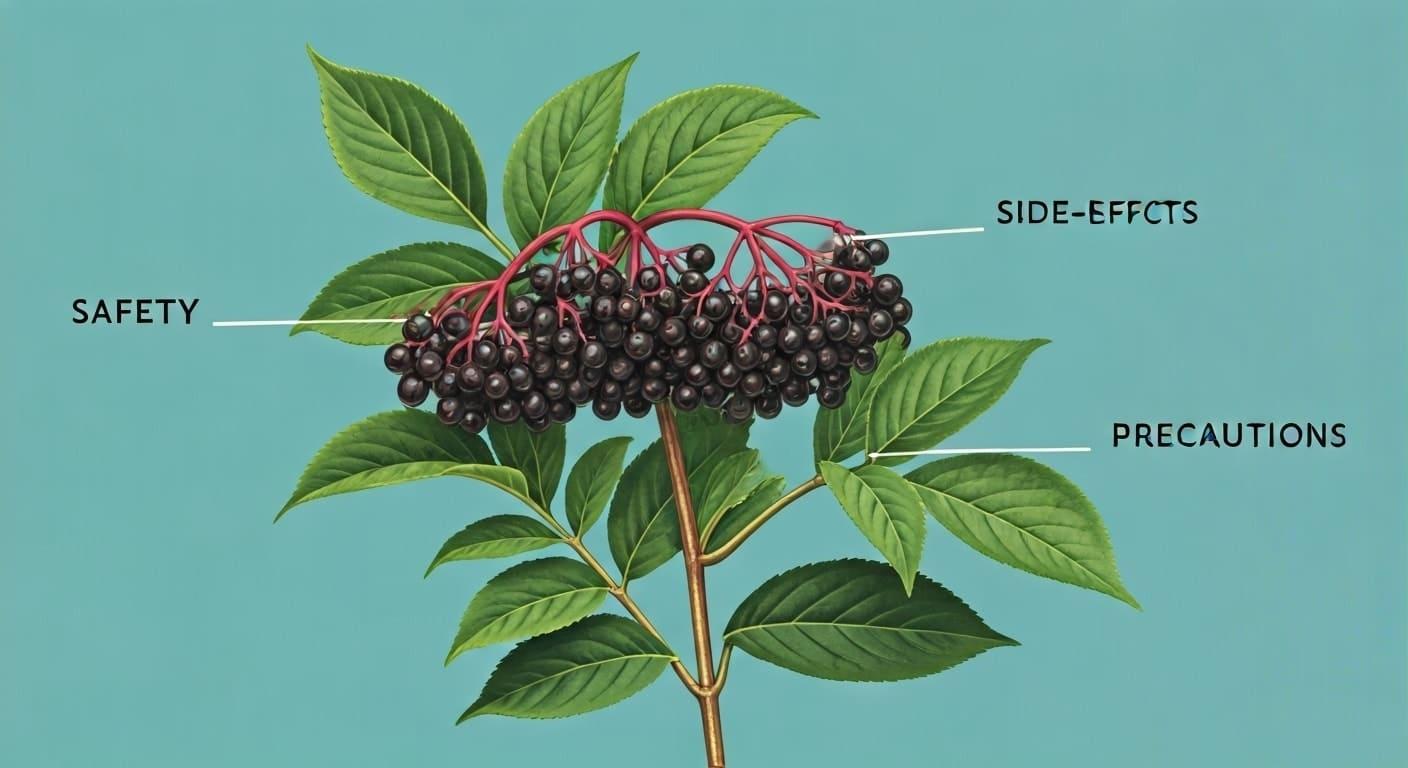
While elderberry is generally safe, side effects or interactions can occur. Possible side effects include nausea or vomiting (especially from unripe or uncooked berries), diarrhea, and allergic reactions such as itching or swelling.
Contraindications include autoimmune diseases, where elderberry may over-boost immune activity; pregnancy, due to insufficient safety data; and immunocompromised individuals, who should consult a healthcare provider before use.
Herbal suspensions can degrade over time. Store elderberry tincture in a cool, dark cabinet to preserve potency and protect it from light exposure. Use non-reactive or lined lids, or place waxed paper between the mixture and metal lids to prevent corrosion. Properly stored elderberry tincture can last up to 5 years, while elderberry syrup can be frozen for up to six months for longer storage.
Interactions and What to Avoid
Elderberry is generally safe to take with vitamins D and B12. However, avoid mixing elderberry with immunosuppressants (as it may counteract them), diuretics or laxatives, and other immune stimulants like echinacea or astragalus unless guided by a healthcare provider.
Raw elderberries contain trace cyanogenic glycosides, but cooking or extracting properly removes this risk. Always rinse fresh elderberries if foraging.
Elderberry Tincture vs Syrup: What’s the Difference?
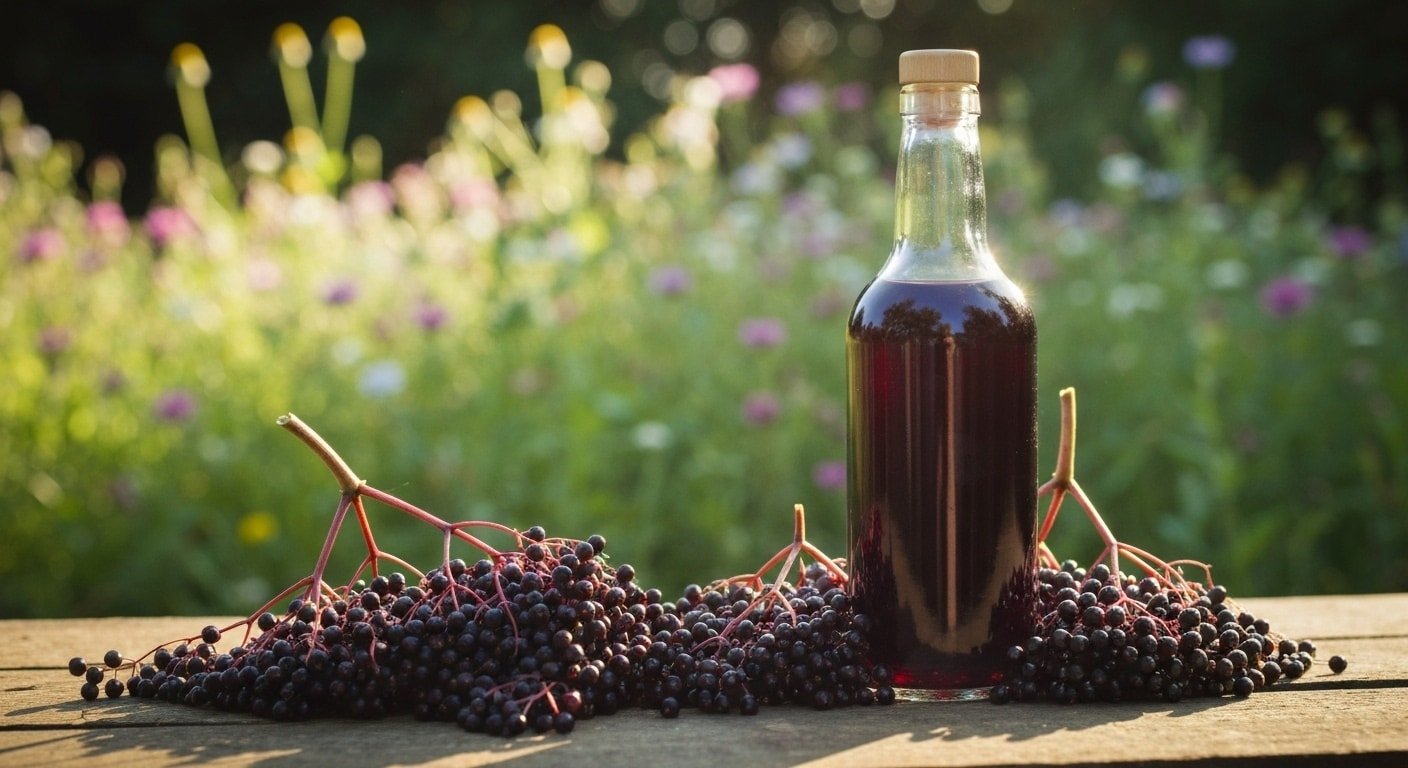
|
Feature |
Elderberry Tincture |
Elderberry Syrup |
|---|---|---|
|
Base |
Alcohol or vinegar |
Water & sugar/honey |
|
Shelf Life |
1–5 years |
2–3 months (refrigerated) |
|
Potency |
Higher |
Milder |
|
Sweetness |
Bitter or neutral |
Sweet |
|
Suitable For |
Adults, long-term storage |
Kids, short-term illness |
Elderberry syrup is sometimes made by bringing elderberries and cinnamon to a boil in a pot, then simmering until the mixture is cooked and thickened. It is often sweetened with honey for added health benefits. Elderberry syrups are widely available in stores and online and are a popular choice for those seeking a sweet, easy-to-take remedy. Reputable sites specializing in herbal remedies or natural health supplements are excellent places to find high-quality elderberry extract and syrup.
In contrast, the menstrum is prepared by infusing raw berries in alcohol, without cooking. Both the menstrum and syrup can be made at home through a simple process. Elderberry syrup is thicker in texture compared to tincture and is often sweeter with a more appealing taste. Elderberry syrup has a shelf life of two to three months in the refrigerator.
How to Make Elderberry Tincture and Syrup (DIY Instructions)
Ingredients for Tincture:
- 1 cup dried or 2 cups fresh elderberries (Sambucus nigra or canadensis only)
- 2 cups high-proof vodka (80–100 proof), or apple cider vinegar
- 1–2 cinnamon sticks (optional, for added flavor and aroma)
- 1/4–1/2 cup raw honey (optional, as a natural sweetener with medicinal benefits)
- Glass jar with a lid
- Cheesecloth or fine strainer
- Dark glass dropper bottles for storage
Steps for Tincture:
- Fill jar halfway with elderberries. If using fresh or frozen washed elderberries, fill the jar ½ full; if using dried elderberries, fill it ¼ full.
- Cover completely with alcohol or vinegar, leaving 1 inch of headspace.
- Seal and store in a cool, dark place for 4–6 weeks. Use a plastic lid or waxed paper between a metal lid and the tincture to prevent corrosion.
- Shake the jar every few days.
- After 4–6 weeks, strain berries using a mesh strainer into dropper bottles and label.
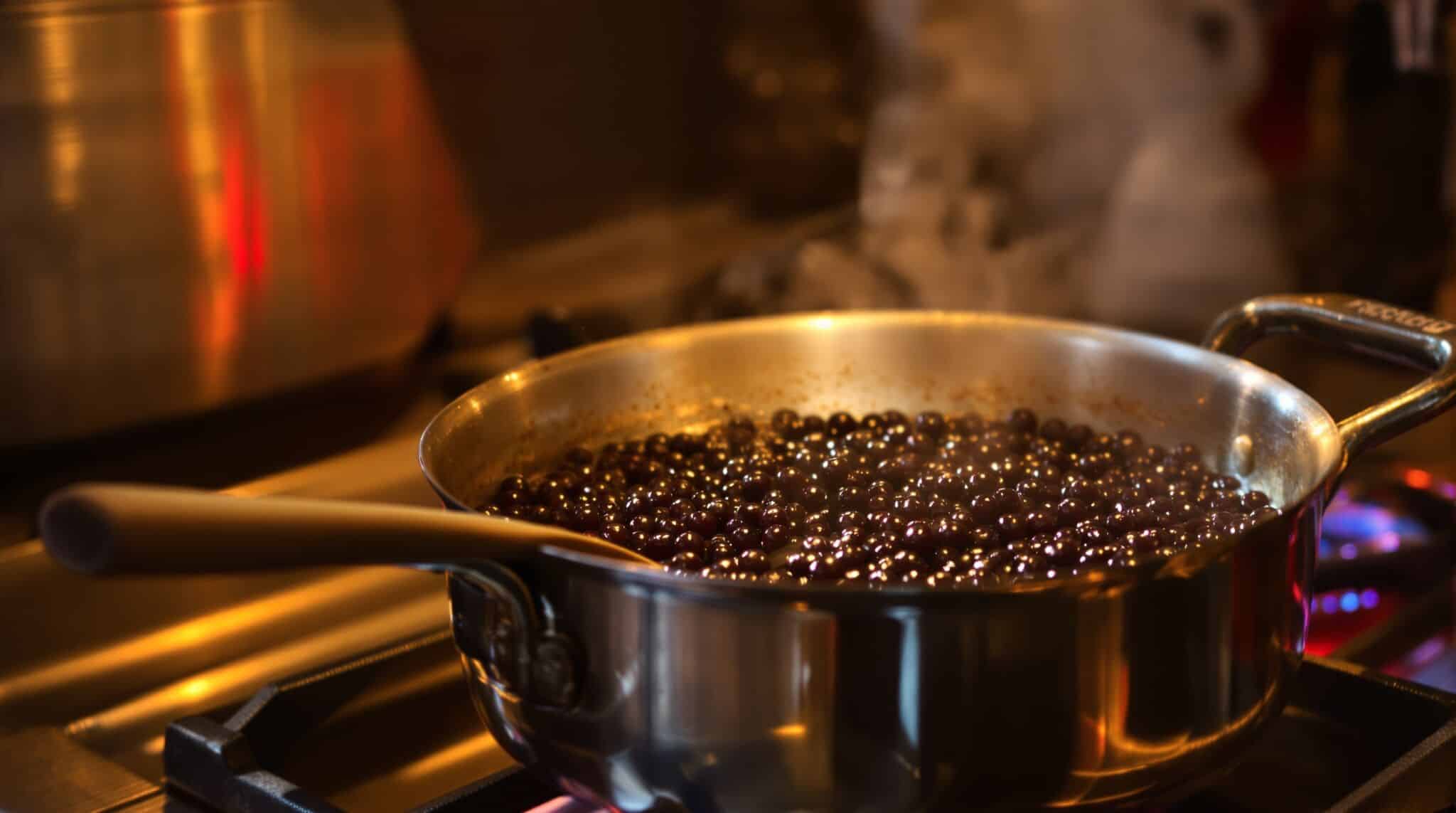
Ingredients and Steps for Syrup:
- Place elderberries, water, and spices (such as cinnamon) in a pot.
- Bring to a boil, then reduce heat and simmer for 30 to 45 minutes.
- Strain the mixture through a fine mesh strainer to separate berries and spices from the liquid.
- Add honey while the syrup is still warm (not hot) and stir.
- Store syrup in the refrigerator for up to 2-3 months or freeze for up to 6 months.
Elderberries should be picked off the stems for syrup preparation. Always ensure berries are fully ripe and never use red elderberry species.
Choosing the Best Elderberry Products
Look for organic or wildcrafted berries with no added fillers or synthetic preservatives. Extracts should be from Sambucus nigra or canadensis and lab-tested for purity. Alcohol-based tinctures last longer but may not be suitable for children or sensitive individuals. Vinegar tinctures are gentler but have shorter shelf lives.
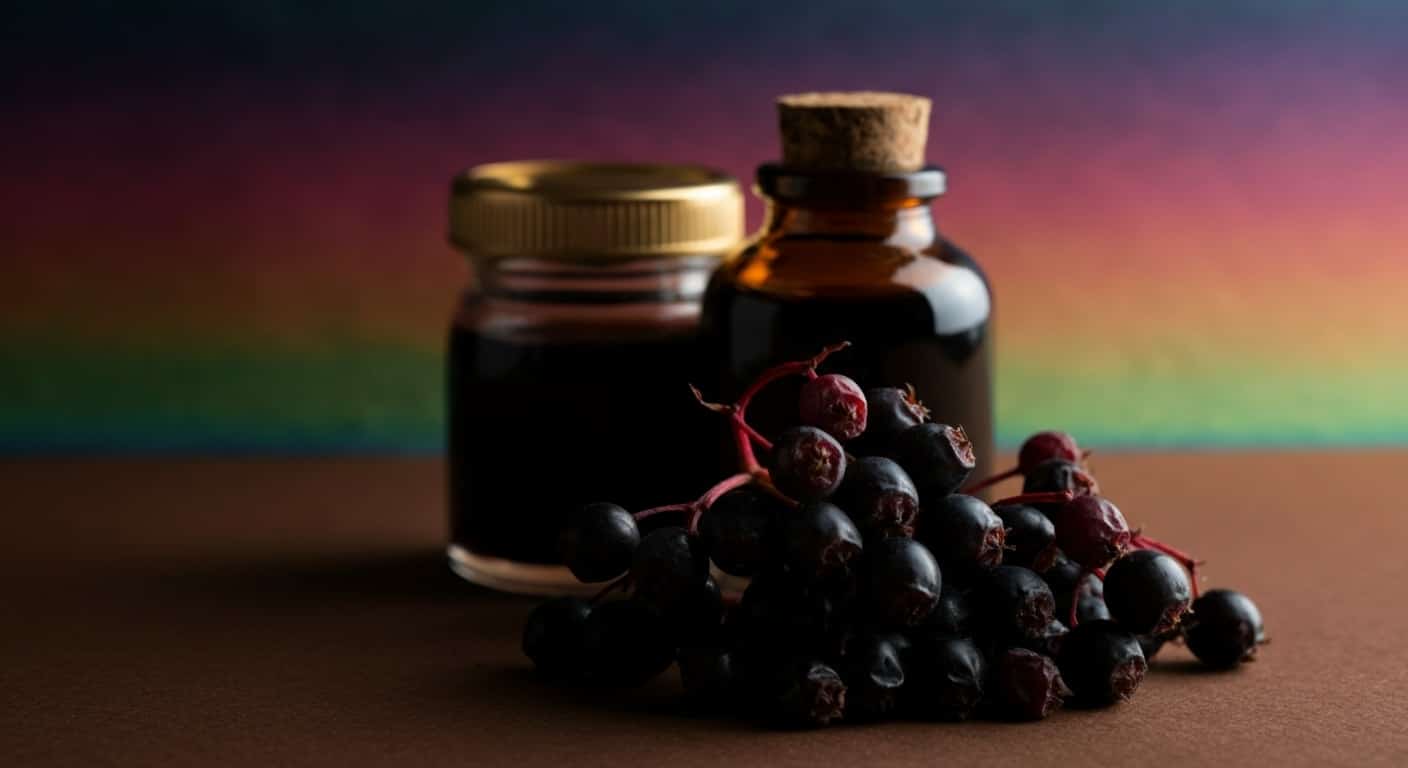
Common Questions (FAQ)
Q: How long does it take for elderberry tincture to work?
A: Some effects may be felt within 1–2 days, especially for cold/flu symptom relief.
Q: Can I take elderberry extracts while pregnant?
A: Consult your doctor. Most advise against it due to limited safety data.
Q: Can you take elderberry and vitamin D together?
A: Yes, there are no known negative interactions.
Q: Does elderberry overstimulate the immune system?
A: It may in autoimmune cases. Use with caution.
Q: Can you make elderberry tincture with apple cider vinegar?
A: Yes, though it will be milder and may require refrigeration.
Q: What is elderberry commonly confused with?
A: Red elderberry (Sambucus racemosa), which can be toxic.
Q: What alcohol is best for elderberry extracts?
A: Use 80–100 proof vodka. Gin is a viable alternative. Non-alcoholic options are available.
Q: Should I take elderberry tincture at the first sign of a cold coming?
A: Yes, early intervention may help lessen severity and duration of symptoms.
Conclusion: Should You Add Elderberry Tincture to Your Routine?
If you’re seeking a natural, potent remedy to boost immunity, ease cold symptoms, and reduce oxidative stress, elderberry tincture is a powerful option. It’s easy to make, stores well, and is versatile. Elderberry syrup can be consumed right away after preparation. Just be mindful of dosage, timing, and contraindications, especially if pregnant or managing chronic illness. Giving a boost to your immune system might be just what your body is asking for.
- Elderberry Tincture vs Syrup: Complete Guide To Benefits, Daily Use, and Safety
- Introduction: What Is Elderberry Tincture?
- Health Benefits for Cold and Flu Season
- Daily Use, Dosage, and Timing
- Safety, Side Effects, and Precautions
- Elderberry Tincture vs Syrup: What’s the Difference?
- How to Make Elderberry Tincture and Syrup (DIY Instructions)
- Choosing the Best Elderberry Products
- Common Questions (FAQ)
- Conclusion: Should You Add Elderberry Tincture to Your Routine?
Masterful Display
Each and everyone of our products are deeply considered, labored over, and improved upon time and time again. We invite you to experience the difference of our carefully crafted small batches of herbal support items. Whether it be our tea line, produced for a delightful experience, or our tincture blends and extracts, we have what you need.

